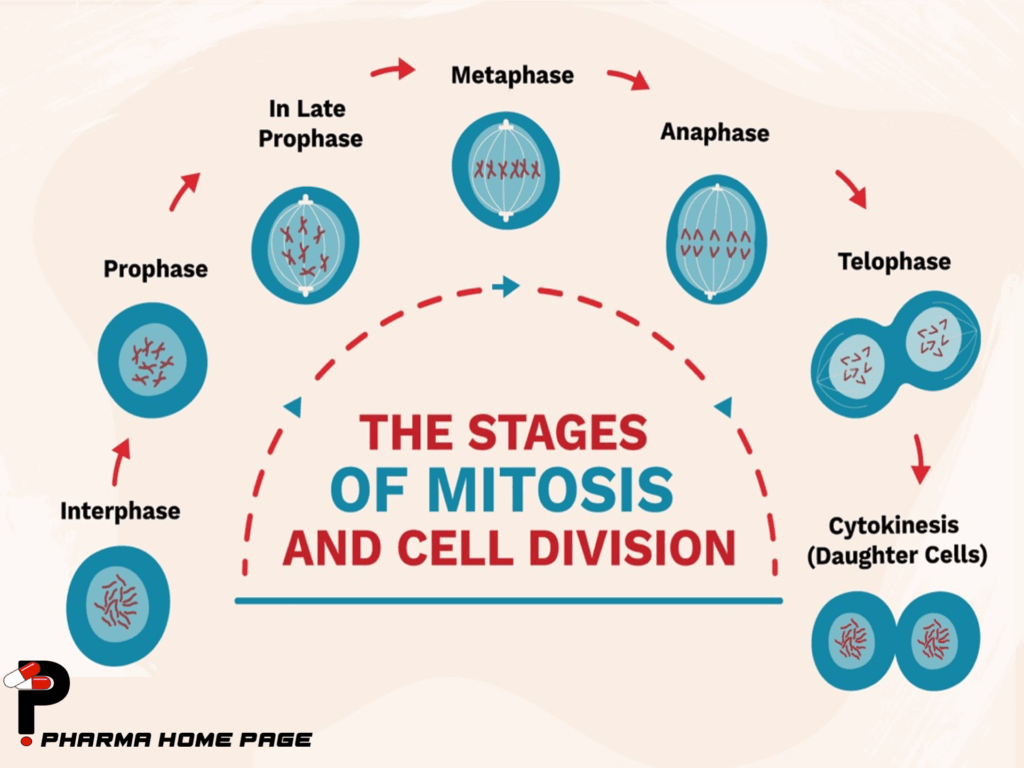Cell division is the process by which a single cell divides into two or more daughter cells. There are two main types of cell division:
- Mitosis: It is a type of cell division that occurs in somatic cells, which are non-reproductive cells. During mitosis, a single cell divides into two identical daughter cells that have the same number of chromosomes as the parent cell. The process of mitosis is divided into four stages: prophase, metaphase, anaphase, and telophase.
- Meiosis: It is a type of cell division that occurs in reproductive cells, such as gametes (sperm and egg cells). During meiosis, a single cell divides into four genetically diverse daughter cells, each with half the number of chromosomes as the parent cell. The process of meiosis is also divided into four stages: prophase I, metaphase I, anaphase I, telophase I, prophase II, metaphase II, anaphase II, and telophase II.

Cell division is essential for the growth and development of organisms, as well as for tissue repair and maintenance. In addition, it plays an important role in reproduction by producing gametes that can combine during fertilization to form a zygote, which develops into a new organism.
Cell division is regulated by a complex network of signaling pathways that ensure that the process occurs correctly and at the appropriate time. Defects in cell division can lead to a variety of disorders, including cancer, in which cells divide uncontrollably and form tumors.
